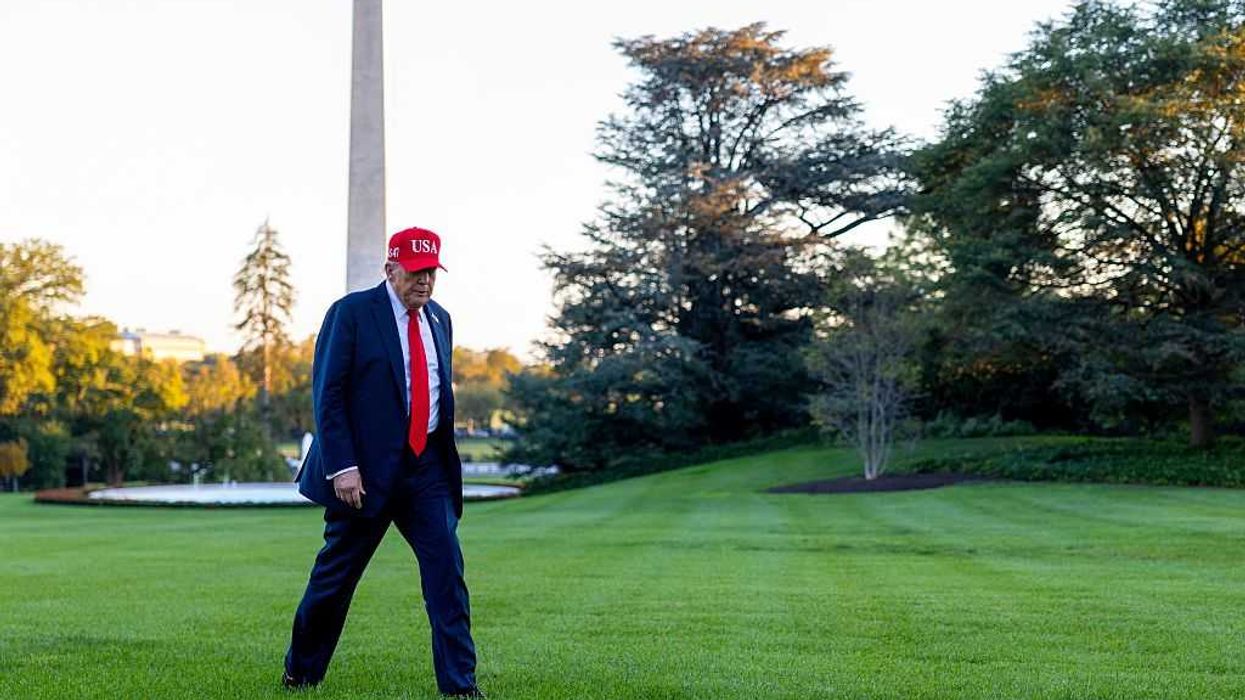When Trump assumed the presidency again, one of his stated aims was to make the government smaller, whether by getting rid of federal employees, cutting "unnecessary" allocated funds and grants, or limiting the scope of the government's work.
So on the one hand, Trump and his MAGA allies are very anti-federal, traditional, big government. And Trump has, through his executive orders and DOGE, stopped much of the work that the federal government has done or has funded for decades—work that supports people in their right to "life, liberty, and the pursuit of happiness" and the common good. (See my post, "Trump's Destruction of Government.") It is the culmination of Ronald Reagan's mantra: Government is not the solution; government is the problem.
On the other hand, Trump has made the federal government (the executive branch) more intrusive in the lives of America's people, businesses, and local governments than perhaps ever before. Among those actions are:
- His tariffs have wreaked havoc on the economy and American corporations.
- He has made all institutions—educational, cultural, and municipal—cease from engaging in policies that seek to better integrate the poor, people of color. and women into our society through DEI programs.
- He is attempting to reshape the judicial branch of government as subservient to him in a way that no former president has (he goes much further than FDR's attempt to pack the Supreme Court).
- He has brought about the reversal of Roe v. Wade, and thus, intruded the government into the private world of a woman's control over her body.
- He is punishing his enemies through the power of the federal government.
- And most recently, he is using the military to police cities that he feels are out of control.
This is not a man who seeks to make the federal government smaller in terms of its impact and intrusiveness. He only wants to do that in certain policy areas—he is against the traditionally progressive action of the federal government. But he is more than willing—eager—to use the power of the federal government to subdue those elements that he is against and to carry out policies that he is in favor of.
This is yet another example of Trump's hypocrisy—he is only true to what he thinks is in his best interest; there is no larger philosophy that he is devoted to. And so he seems capricious in his actions, veering one way one day, and in another direction the next day. His only loyalty is to himself.
When our country was founded, one of the main points of contention between the various delegates to the Constitutional Convention was how strong the federal government should be vis-à-vis the states. After the weak Articles of Confederation failed, the current Constitution was drafted, giving much more power to the federal government.
Conservatives have always been against "big" government, which is to say a government that helped those in need, helped people make the most of themselves, and regulated business to protect the public good is a progressive government. That is what Trump has been dismantling.
But some Founders, such as Thomas Jefferson, also worried about the stronger central government taking away individual rights, which is why he proposed the Bill of Rights, the first 10 amendments to the Constitution. Trump paints himself as a big supporter of individual rights—but that applies only to his rights and the rights of his supporters; those who oppose him have no rights in his view (as an example, Kimmel has no right of free speech to criticize Trump).
While Trump is making the helping part of the federal government smaller, he is creating a different "big" government, using the government to control what people do, intruding in their lives; using the military to usurp the power of local government; and interpreting the law so as to enable the aggrandizement of his power. What he has been doing in his second term is Orwellian in scope. This is very much what the Founding Fathers feared, and what they tried to prevent.
The Founders were also adamantly against anything in the structure of the new government that would allow the development of an executive with the power of a king—which is to say almost absolute power. (See my post, "Why the Declaration of Independence Argues for the Removal of Trump.") Which is why the Constitution was drafted with a carefully defined balance of power between the three independent branches of government—legislative, judicial, and executive. But Trump is seeking to make the other branches subservient to him—he has already rendered the legislative branch virtually impotent and is attempting to control the judicial branch.
The Declaration of Independence is, in large part, a recitation of the colonists' grievances against the king's exercise of absolute power over the colonies—greater power than he had over English citizens. That is why the Declaration states that the government derives its power "from the consent of the governed." This, as opposed to the divine right of kings.
True, Trump was elected, fairly, by not just carrying the Electoral College but a slim majority of the popular vote. (He would not be the first autocrat in the world who was elected into office by the people.) But regardless of their consent, or what he would call "mandate," the governed cannot give consent to violate the Constitution.
Here again, as I've urged in other posts, it is the task of the Democratic Party to bring these facts to the attention of the public in an organized, effective manner. While at the same time, showing their own bonafides in implementing the promise of the Declaration of Independence.
Thomas Jefferson was worried about the potential power of the federal government and of a single individual within that government—Donald Trump is his nightmare come alive.




















